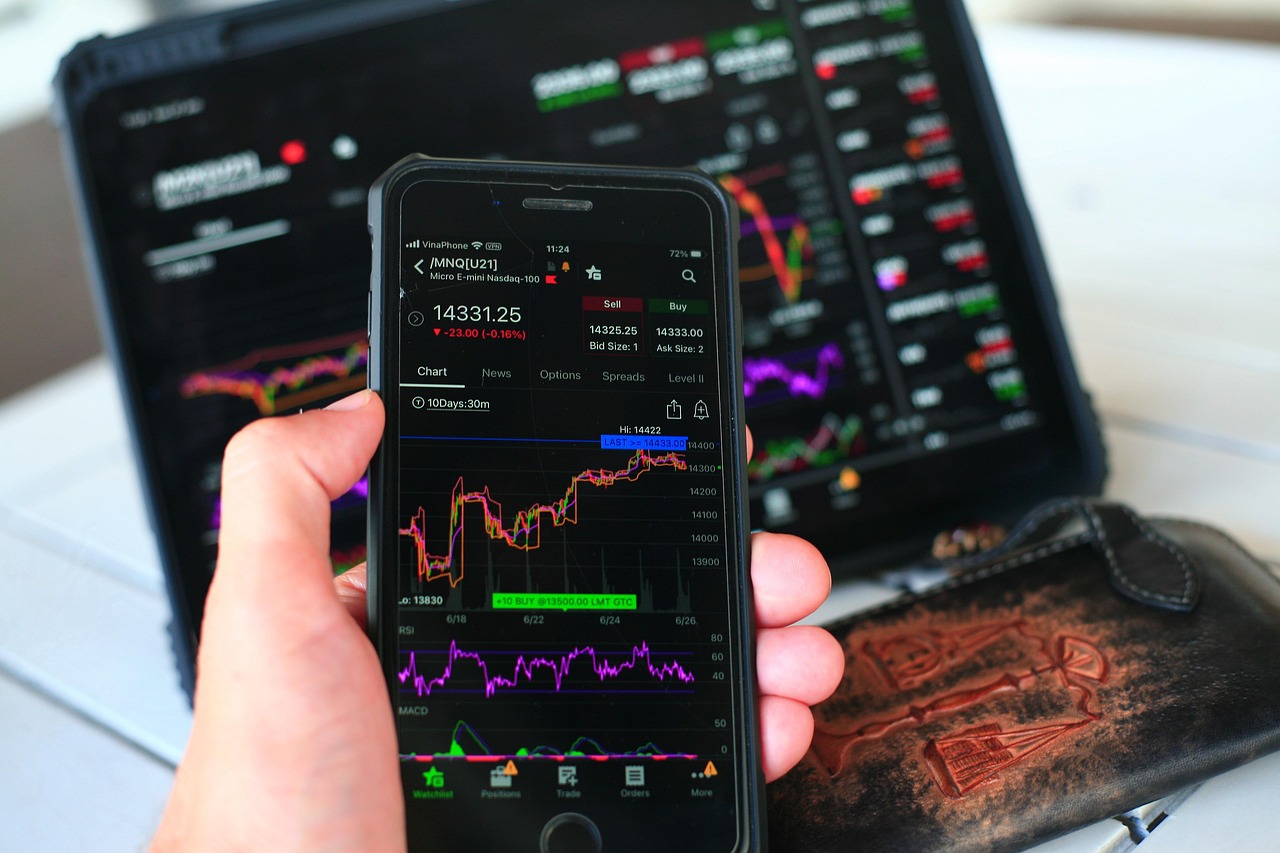Mobile technology continues to be a driving force behind innovation in business, reshaping how companies engage with customers and streamline their operations. As we navigate the evolving landscape of 2025, understanding key mobile technology trends is essential to stay competitive and agile. With over 5.75 billion unique mobile users globally and more than 7 billion smartphones in use, businesses are increasingly compelled to prioritize mobile-first strategies. The proliferation of devices from brands such as Apple, Samsung, Google, and emerging players like OnePlus and Xiaomi ensures that mobile interactions dominate consumer touchpoints. This environment calls for a meticulous assessment of mobile innovations—from AI enhancements and 5G expansion to fintech breakthroughs and heightened security measures—that can transform your business model. Companies that capitalize on these advancements will unlock new growth avenues, improve user experiences, and secure operational efficiencies.
How AI and Machine Learning Revolutionize Mobile Business Applications
The integration of Artificial Intelligence (AI) and Machine Learning (ML) into mobile technologies is redefining customer interactions and operational workflows across industries. In 2025, AI-driven mobile features, such as chatbots and predictive analytics, are becoming standard in enhancing personalized user experiences and automating routine tasks, thereby enabling businesses to focus more on innovation and strategic growth.
Chatbots and Virtual Assistants Enhancing Customer Engagement
Mobile apps are increasingly embedding AI-powered chatbots that facilitate seamless communication and transactions. For example, the Starbucks app employs the Starbucks Barista chatbot, allowing users to place orders via voice or text, personalize their drinks, and process payments efficiently. This integration even extends to voice assistants like Amazon Alexa, offering users multiple convenient ordering channels.
Similarly, Bank of America’s virtual assistant, Erica, demonstrates how AI can deepen customer relationships through personalized financial advice, 24/7 account support, and even light-hearted interactions. Since its launch, Erica has engaged in over 2 billion customer interactions, illustrating the scalability and appeal of AI in financial services.
Predictive Analytics Empowering Proactive Business Strategies
Predictive analytics is another AI application transforming mobile apps into proactive solutions. Services like AccuWeather harness historical and real-time data to forecast weather conditions with remarkable accuracy, enabling users to plan activities confidently. Similarly, Amazon’s recommendation engine employs machine learning algorithms analyzing browsing and purchase history to suggest relevant products, significantly boosting sales by anticipating customer preferences.
Automated Content Creation for Marketing and Communications
Creating compelling content is also being streamlined by AI-powered mobile tools. Canva’s mobile app offers automated design templates that simplify graphic creation, catering even to users lacking design skills. The ChatGPT mobile app complements this by generating polished textual content quickly, useful for social media updates or blogging efforts, providing marketers with powerful productivity boosts on the go.
- AI and ML integration improves personalization and customer service.
- Chatbots provide 24/7 support and enhance user convenience.
- Predictive analytics informs strategic business decisions and marketing.
- Automated content creation reduces workload and accelerates campaigns.
| AI Application | Business Benefit | Example |
|---|---|---|
| Chatbots | Improved customer engagement and 24/7 availability | Starbucks Barista, Bank of America’s Erica |
| Predictive Analytics | Enhanced user experience and targeted marketing | AccuWeather, Amazon Recommendations |
| Content Automation | Faster content creation and marketing efficiency | Canva app, ChatGPT app |
Incorporating AI and ML technologies into mobile platforms allows businesses to optimize operations, anticipate customer needs, and maintain a competitive edge. The involvement of technology giants such as Qualcomm in powering AI-capable processors further accelerates these capabilities. Exploring partnerships with experienced developers, like those at Touchlane, can facilitate the seamless integration of these intelligent features into your mobile strategy. To dive deeper into AI-powered mobile applications, explore insights at Touchlane’s mobile technology trends 2025.

The Expanding Reach of 5G Networks: Opportunities for Mobile-Driven Innovation
The rollout of 5G networks has become a cornerstone for mobile business innovation. As of late 2024, global 5G connections surpassed two billion, reflecting nearly 50% growth year-over-year. Telecom giants like Verizon, AT&T, and hardware innovators such as Samsung and Huawei continue to invest heavily in expanding coverage and device compatibility. This momentum paves the way for accelerated data transmission, ultra-low latency, and enhanced connectivity, unlocking transformative applications across sectors.
Real-World Use Cases Driving Industry Transformation
A notable example is the 5G Logistics Project conducted by the West of England Combined Authority. Over 18 months, this initiative tested 5G’s impacts in a freight port scenario, uncovering distinct advantages:
- Real-time traceability of goods enhancing supply chain transparency and security.
- Deployment of autonomous drones for surveillance and emergency response.
- Smart traffic management via 5G-enabled junctions optimizing logistics movement.
These advancements exemplify how 5G can revolutionize operational efficiency and safety in high-demand environments, signaling immense potential for businesses reliant on speed and connectivity.
5G’s Role in Powering Immersive and Data-Intensive Mobile Experiences
Beyond logistics, 5G facilitates breakthrough mobile applications such as augmented reality (AR), virtual reality (VR), and real-time AI analytics, instrumental in delivering personalized experiences and timely insights. For example, brands like OnePlus and Microsoft integrate 5G technology in mobile devices and cloud solutions to empower employees with seamless remote collaboration tools and augmented field services.
| 5G Impact Area | Business Benefit | Industries Affected |
|---|---|---|
| Enhanced Mobile Speeds | Faster transactions and data processing | Retail, Healthcare, Finance |
| Ultra-low Latency | Supports autonomous vehicles and drones | Logistics, Security, Transportation |
| Massive IoT Connectivity | Scalable smart devices and sensors | Manufacturing, Smart Homes, Agriculture |
Businesses aiming to leverage 5G should consider collaborating with device manufacturers like Nokia and Motorola that are at the forefront of 5G infrastructure and mobile device development. Staying informed about such technologies is pivotal; Forbes offers comprehensive analysis on critical telecom trends shaping the current year.
Mobile Wallets and Financial Technology: Reshaping Commerce and Transactions
Mobile wallets and fintech innovations have transformed consumer finance behavior, with adoption rates soaring globally. In particular, digital wallets have overtaken traditional payment methods in popularity across regions, driven by convenience, security, and seamless integration into mobile ecosystems maintained by Apple, Google, and brands like Xiaomi.
Current Adoption and Emerging Features
Statistics show that 53% of Americans frequently use digital wallets, with China leading worldwide at an impressive 81.5% smartphone user adoption rate. Platforms such as Apple Pay and Google Wallet have made contactless payments, investment management, and bill payments effortlessly accessible through mobile devices.
Looking ahead, expectations include:
- Expansion of cross-border payment capabilities offering reduced transaction fees.
- Integration of cryptocurrency wallets within mainstream apps.
- AI-powered financial advisory tools enhancing personal financial management.
Business Benefits and Implementation Strategies
Integrating mobile wallet technology can streamline checkout processes, accelerate transaction speeds, and boost customer loyalty. Furthermore, fintech advancements minimize physical infrastructure reliance and reduce operational costs through automation and data-driven insights. Businesses in e-commerce and retail sectors, powered by Qualcomm chipsets and software innovations from Microsoft, stand to gain significant advantages by supporting multiple mobile payment platforms.
| Feature | Benefit | Example Platforms |
|---|---|---|
| Contactless Payments | Faster and secure transactions | Apple Pay, Google Wallet |
| Cross-border Payments | Lower fees and expanded markets | Emerging fintech apps |
| AI Financial Advisors | Personalized financial health insights | Bank of America’s Erica, AI startups |
Businesses seeking to future-proof their financial technology strategies would benefit from adopting prevalent platforms like Apple Pay and Google Wallet integration as standard. For deeper insights into these shifts and their commercial impacts, visit Techahead’s report on mobile commerce.

What Heightened Mobile Security Means for Your Business Sustainability
The surge in cyber threats targeting mobile applications is a pressing concern for businesses worldwide. In the first half of 2024, Kaspersky Security Network detected millions of malware-related attacks, and the risk profile for platforms like Android has escalated dramatically. As businesses expand their mobile presence, robust security frameworks are indispensable to protect customer data and maintain operational continuity.
Advanced Security Measures Becoming Industry Standards
To combat these threats, companies increasingly deploy sophisticated solutions such as biometric authentication, end-to-end encryption, and real-time threat detection powered by AI. Implementing zero-trust architecture and multifactor authentication (MFA) are rapidly evolving from optional to mandatory best practices, especially when dealing with sensitive user information.
Regulatory Compliance and Customer Trust
With stricter data privacy laws being enforced globally, failure to secure mobile platforms can result in costly legal repercussions and reputational damage. Businesses investing in mobile security solutions not only safeguard assets but also boost customer confidence and satisfaction.
- Biometric authentication improves access control.
- Encryption ensures data confidentiality during transmission.
- AI-driven threat detection provides proactive security responses.
- Zero-trust models limit internal and external attack surfaces.
Companies partnering with security-focused providers and leveraging platforms from industry leaders such as Microsoft and Qualcomm gain access to cutting-edge protection technologies. For a more detailed exploration of mobile security trends, consult SaM Solutions’ comprehensive insights.

Emerging Mobile Ecosystems and Ethical Technology in Business Innovation
Beyond hardware and instantaneous connectivity, mobile trends in 2025 increasingly focus on creating comprehensive ecosystems that offer multifaceted services accessible from a single app. These “super apps,” as popularized by platforms like WeChat and Southeast Asia’s Grab, encompass messaging, e-commerce, financial services, and more, aiming to enhance user retention and monetization.
Augmented Reality, Virtual Reality, and IoT: Enhancing User Engagement
Integration of AR and VR transforms customer experiences by enabling virtual try-ons, immersive training, and remote collaboration, utilized by tech leaders deploying devices from Nokia and Huawei. Likewise, IoT-connected mobile applications facilitate smart home management and predictive maintenance, bolstering operational efficiencies and user satisfaction.
The Rise of Ethical Mobile Technology
Simultaneously, there is growing emphasis on ethical concerns such as user data privacy, accessibility, and transparent AI usage. Businesses adopting these principles differentiate themselves by fostering trust and meeting increasing regulatory demands.
- Super apps enhance user convenience by consolidating multiple services.
- AR/VR technologies create engaging, memorable interactions.
- IoT integrations optimize real-time data for decision making.
- Ethical technology builds consumer trust and ensures compliance.
The synergy of these trends suggests that mobile applications will not only serve functional roles but also act as strategic platforms for innovation and competitive advantage. To understand how these aspects interplay within the mobile technology market, consider reviewing the Mobile Technology Market Report by StartUs Insights.
Key Trends in Mobile Technology That Could Affect Your Business
| Feature | Benefit | Examples |
|---|


